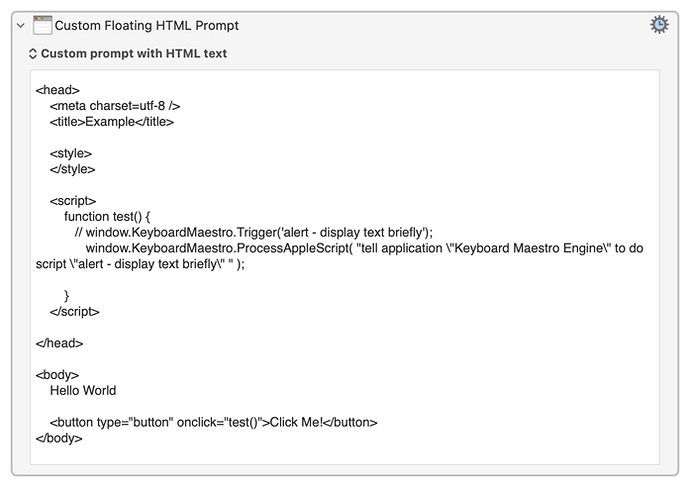Thanks, @peternlewis. This is very helpful!
I'm wondering if there is a bug to KeyboardMaestro.ProcessAppleScript. It does not work in my test macro.
Test ProcessAppleScript in HTML Prompt.kmmacros (3.7 KB)
I have it to trigger another macro (also included in the macro above), it does not trigger it.
window.KeyboardMaestro.Trigger('alert - display text briefly'); (commented out in the javascript) works.
The other macro contains only a simple action:

